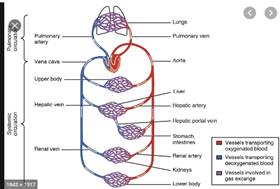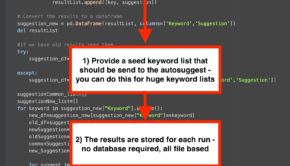BERT – the Latest Google Algorithm Update Explained Simply
Google announced its latest search algorithm update by the name of BERT on October 24, 2019, saying at the same time that it had already been rolling it out for some days. BERT or Bidirectional Encoder Representations from Transformers, according to Google is a “neural network-based technique for natural language processing (NLP) pre-training”, which will affect one in ten queries. This effectively means that it is easily among the biggest updates that Google has launched in the last five years. Even as experts around the world scramble to make sense of the update, there is already a fair amount of confusion among search engine optimization practitioners regarding its impact. A quick look at what BERT is and how it can change the search environment:

What Is the Update All About?
Stripped of its jargon, BERT is the latest attempt by Google to focus on interpreting better the intent of the search queries by users. According to https://www.forbes.com, BERT has the capability of reading a full sentence at once to obtain the most accurate context. This means that just as in natural languages, even slight modifications in the words can change the meaning of the search; BERT is capable of understanding the impact of these variations and appreciates the intent of the searchers better
Additionally, BERT also possesses the capability of learning the nuances of search intent as it encounters more and more information. BERT’s language understanding capabilities will give users superior results that are more likely to satisfy the search intent of the users. Normally, search engines have trouble figuring out the real intent of the searcher’s queries as the intent of the searcher is based more on his personal interest expressed as conversational queries that can be quite complex and difficult for search engines to make sense out of. Google says that the main reason for searchers to use complex queries is that they think that the search engine will not otherwise be able to comprehend the normally framed conversational queries. This is the technological and conceptual gap that Google is trying to bridge with BERT.
The Impact of BERT on Voice Search

As far as SEO of the future is concerned, voice search is undoubtedly a very big change agent because of its rapid adoption by users all over the world and the difference in the way voice search queries are typically framed compared to text searches. BERT is thought to be the latest attempt by Google in recent years to promote features that focus on voice assistants. According to Google, the BERT update is the result of years of very hard effort put in by the language research team of its machine learning department and marks a milestone in search technology being one of the most noteworthy advancements by the company in its checkered history. The requirement of a better quality of search results based on the context has become more imperative with voice search on personal assistant devices becoming more ubiquitous by the day, according to a leading marketing in Chicago, IL.
How Did the BERT Algorithm Originate?

The roots of the BERT algorithm go back a couple of years to 2017 when the AI team of Google commenced work on what they termed as Project Transformers, which is a model developed by Google to understand transformer language based on new concepts of neural network architecture. The neural network architecture concept attempts to process words in the context of the rest of the words in the sentence rather than trying to understand what each of them means one by one. BERT is a development of the Transformers concept and tries to comprehend the context of a word based on the meanings of the words preceding and succeeding it. This helps Google to analyze the search query better and understand what the searcher wants so that it can deliver a result that is more accurate and useful. Google has also confirmed that the update applies to the entire search infrastructure and is not restricted to just changes in the software. To further advance the limits of what search can achieve, the search engine giant has introduced Cloud TPUs to quickly provide additional contextual information. Tensor Processing Units as cloud TPUs are also known as are custom applications of Google that can assist in boosting the performance of the AI and machine learning algorithms. These become necessary as the performance of the new processes brought in by BERT may be hampered by conventional hardware.
What Is the Impact of BERT on the Search Results?
Google has already started using BERT selectively for displaying search results and has confirmed that around 10 percent of the search queries have been affected. For search queries that are more conversational and longer, the changes noticed are larger. In the past SEO practitioners have conventionally discounted the importance of using articles and prepositions in the process of page optimization since they never figured in the keyword strategy, however, now that the BERT update is being rolled out, SEO experts will have to alter their thinking as just a simple change in a preposition could entirely change the search results. The BERT algorithm drives home the importance of the use of articles and prepositions in defining the intent of the search query by the user. The rollout of BERT will also significantly affect featured snippets. According to available statistics, 99% of results based on voice search appear on featured snippets. According to a Google statement, the BERT algorithm is capable of understanding the Featured Snippets that are the most appropriate. The net result of the changed search scenario is that there may be a lot of changes in the Featured Snippets already exist.
Conclusion
If you have witnessed a decline in organic web traffic in the last few days of October, especially concerning voice search and Featured Snippets, it is likely an effect of BERT. With the update focusing more on the relevance of the content, the opportunity of improving the rankings by making technical changes does not exist. The only way to regain ranking superiority is to ensure that the content fits the intent of the target users more and SEO practitioners will have to focus hard on content quality and presentation.









![Top 5 Tips to Boost your Construction Company’s Profits [Infographic]](https://technofaq.org/wp-content/uploads/2018/07/Top-5-Tips-to-Boost-Your-Construction-Companys-Profits-150x150.png)





